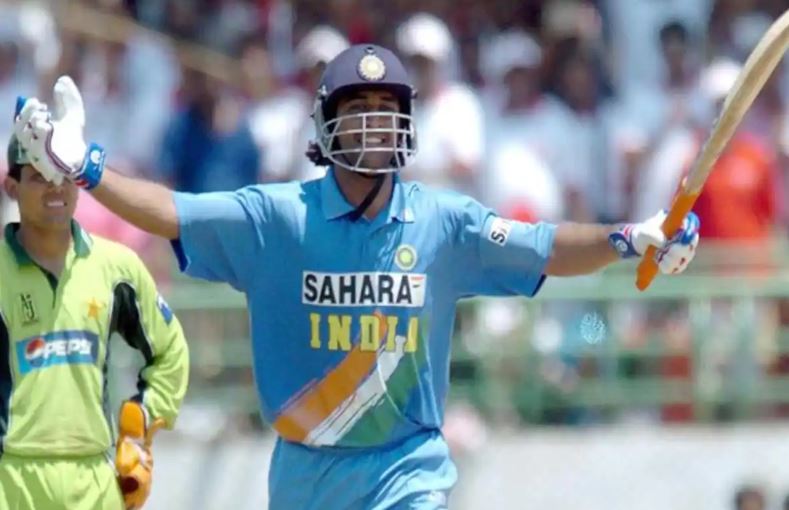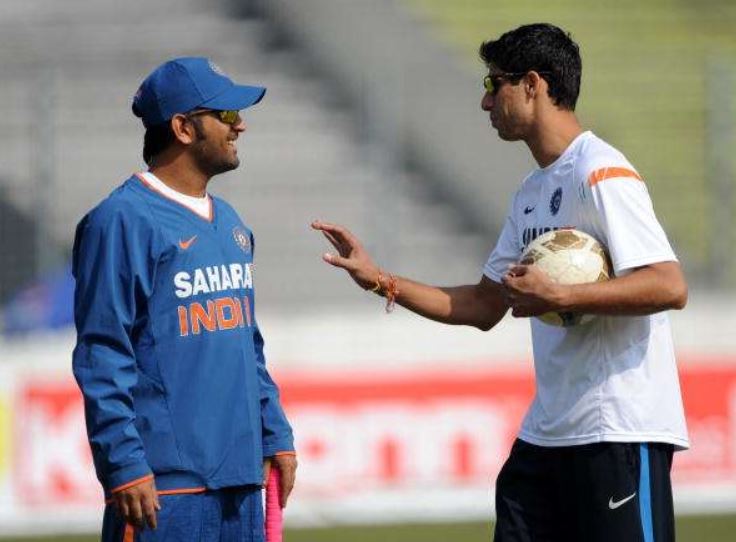On Sunday, it was the 15th anniversary of MS Dhoni‘s maiden ODI century, which made him an overnight rockstar. His explosive knock of 148 ushered India into a new era as he had plundered the bowling of Pakistan. If Adam Gilchrist changed the perception of how wicketkeepers batted, Dhoni took it even further, becoming the most prolific wicket-keeper batsman when he amassed more that 10000 runs in ODIs.

Along the same lines, Ashish Nehra fondly recalled the memories, explaining how Dhoni’s knock against Pakistan gave a belief to the Indian team that they can have their own proper wicket-keeper batsman.
ALSO READ: Sunil Gavaskar Reveals Down To Earth Nature Of MS Dhoni
During an interaction with Time of India, Nehra recalled, “That innings got the team to believe that we too could have a prolific wicket-keeper batsman. Dhoni didn’t have a great time in his initial matches. But when a confident man like him gets an opportunity and cashes in, then it’s hard to pull him back. That innings was like he had tasted blood and he yearned for more. We lost all the remaining four matches in that series but we discovered Dhoni.”

As Nehra said, before that match, Dhoni had registered the scores of 0, 12, 7* and 3, batting down the order in all those matches. Sourav Ganguly, the then-captain of India, decided to make way for Dhoni at No. 3 the former India captain had scored over 1000 runs from 30 innings at one down, prior to the Vizag ODI.
That was a time when India was struggling to find a permanent wicket-keeper batsman. After Nayan Mongia, plenty of names were tried Ajay Ratra, Sameer Dighe, Vijay Dahiya, Deep Dasgupta, Dinesh Karthik, Parthiv Patel but Dhoni answered most of the questions.
ALSO READ: Yuzvendra Chahal comments on Choosing Cricket over Chess
Talking about him, Nehra said, “Dhoni wasn’t the best wicketkeeper around when he first came in. He was certainly not a Kiran More or a Nayan Mongia. So it’s not that he was miles ahead of his contemporaries as a wicketkeeper, but he made for a better package. His discipline, passion, composure, and confidence made him different. He worked hard on his game, knew what works for him and grew as an impeccable wicketkeeper.”
